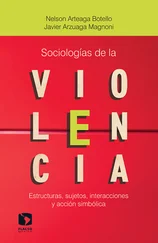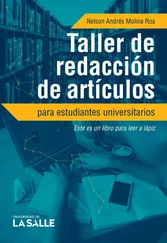Gabriel whipped the boat into a precarious U-turn and retreated down river. But despite the boat’s considerable speed, the thundering drew closer behind them. Glancing back, Olimpia gasped in disbelief. The river was roiled up in a fury of rampaging water and tumbling logs—now less then thirty meters from their stern.
* * *
The sun had dipped around the side of the Sierra Nevada de Santa Marta, but the distant sea still reflected its fire.
The Kogi laid out four sleeping bags. They would be needed at that elevation. Diane pulled a sweatshirt over her head and adjusted the sleeves. “More tea?” she asked Olimpia who distractedly held out her cup in response.
Diane poured, placed the tin pot on a warm rock, sat down and waited. There had been a paradigm shift in her relationship with Olimpia. After all the years of listening to tales of Diane’s successes and failures, her aspirations, her joys and her fears, Olimpia had finally pried opened a crack into her own life. And tonight they had become friends.
Diane realized she hadn’t just been listening to Olimpia’s story; she had been a participant. At times she had wanted to close her ears against it; it was all too voyeuristic, and in some odd way, incestuous. She was able to imagine Olimpia’s courtship and lovemaking with Gabriel in keen detail. She knew how Olimpia felt when he looked at her, when he touched her. She knew, only too well, the white-hot passion that ignited in that river hut.
Olimpia sipped tea and stared into the fire, then said in a flat voice, “We outran the logs, but we did not avert disaster.”
She told Diane about how she and Gabriel waited at the village, praying Eduardo would show up soon. Gabriel wrung his hands and paced saying he should have known Eduardo would do this; he had been begging Gabriel to let him take charge of the crew. Gabriel said he should have watched his brother more closely.
Now, Olimpia, voice trembling, turned to Diane, “I tried to defend Eduardo’s actions to Gabriel. That was the greatest mistake of my life.”
Olimpia explained to Gabriel that on the evening she met Eduardo, he had said how he admired his older brother, but felt smothered by his protectiveness. He said he had to prove himself to Gabriel. He encouraged Olimpia to accompany them up river. He said perhaps she could soften Gabriel’s view toward him. Olimpia thought joining the Carrera’s flotilla was a wonderful idea, an arrangement where everyone benefited.
It was then that two logging crew members, bruised and bleeding, dragged themselves into the village. They had just enough strength to recount their story to Gabriel and Olimpia.
Eduardo had lied to the crew. He told them Gabriel had placed him in charge. As the self-appointed leader, he chose to take the helm of the dugout carrying the detonators. For safety sake, Eduardo gave the dynamite boats a twenty-minute head-start, then motored slowly upstream against the fast-moving current.
The men had finished securing their boats near the levies when they saw Eduardo round the last bend in the river. He seemed to be wrestling with the tiller. His rudder must have hit a submerged tree limb; he couldn’t steer the boat. Then the throttle seemed to stick at the highest speed. He looked up and obviously saw that he and the detonators were charging headlong toward the three boats full of dynamite. Eduardo stood up and plunged into the rushing water.
The two men ran ahead of the explosion to the logging camp. But it had been set up on a low bank, and the water and logs destroyed it. The men then fled to higher ground. They saw no sign of Eduardo on their way to the village.
It was then that Gabriel turned on Olimpia in a murderous rage. He accused her of entering into a plot to dupe him. Then he congratulated her for her resounding success. “Do you realize what you have done?” he shouted over and over.
Now, Olimpia buried her face in her cupped palms and murmured barely loud enough for Diane to hear, “Gabriel left me there. I did not see him again for nine years.”
After several seconds, Olimpia raised her head. Her voice was calm. “I returned home. Sent my condolences when I read they had found Eduardo’s body. I came to Pennsylvania. Met you for the first time. Discovered I was pregnant. And I began another love story… I named him Eduardo Garza y Carrera.”
With black hair and white robes streaming in the wind, five men poured off the mountain, shouldered the trekkers’ gear, then proceeded antlike up a twisting pathway toward their village thirty meters aloft.
Hearing the chorus of whispers on high, Diane opened her eyes. She was looking at the thatched ceiling of a kankurua. It hadn’t been a dream; she was in the Kogi village and had spent a restless night in the hut reserved for Olimpia’s visits. She looked over at Olimpia’s bed. It was empty.
Diane rolled out of her hammock, stepped outside and gazed around in wonder. She was standing in a flat, open area just below the glaciers and far above the rain. Overhead, the great mountain sighed. The splendor of it all brought a lump to her throat. Her heart swelled in anticipation the day that lay ahead.
Last evening, Olimpia had introduced Diane to Yami the tribe’s shaman and high priestess who had promised Diane a tour of the Kogi lands this morning.
She bathed with the water provided in her gourd basin, then pulled on a sweat suit and headed toward the village common area. She and Yami had agreed to meet there after the shaman finished a training session with the young priestesses.
As Diane passed several round huts along the pathway, white-robed men and women poked their heads out of doorways. “ Buenas , buenas ,” they called to her.
Arriving in the lower village, she watched Yami line up several young women behind a flat-topped boulder that stood in the center of the common area. The large stone held a bouquet of dried thistles. One by one the girls approached the bouquet, reached for it timidly, then squealed when it pricked them.
After Yami dismissed the class, she greeted Diane warmly. “Come, let us walk.”
The high priestess stepped out energetically, white woven gown flowing against her willowy form. Diane fell in beside her. Yami answered Diane’s question before it formed on her lips.
“They are seeking their strong life force.”
“How do the thistles help?”
“The thistles are a test. When the young priestesses are able to approach them with courage, it means they have found the center of their power and reached into it. Then the thistles cannot harm them.”
They came to a narrow trail, and Yami led the way. After an hour-long walk they reached an open plateau. Yami stepped to the edge and pointed out the Kogi aerial farmlands terraced into the mountainsides below them. Then she held out her arms and turned clockwise, chanting the names of the peaks penetrating the heavens before them.
Lastly, she called out to the great glacial mountain that stood behind them, “Avistar.” The mountain inhaled.
Yami sat on a long, flat rock and reached into a deep pocket woven into her gown. She patted a spot beside her. “Come, I have brought food.”
They ate pan-fried bread made with manioc and sprinkled with tiny black seeds. Yami explained that the seeds were from the craoa , one of their ancestor plants that gave them vision.
They were silent for several minutes, watching the cloud forests floating in verdant valleys below.
Then Yami spoke: “My people have named you ‘the closed emerald one,’” she said.
Turning, Diane studied the shaman’s weathered but ageless face and smiled. “I like the emerald part.”
Читать дальше












